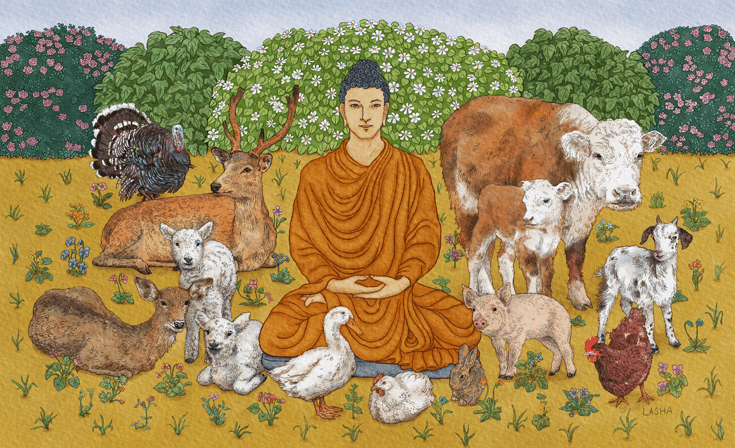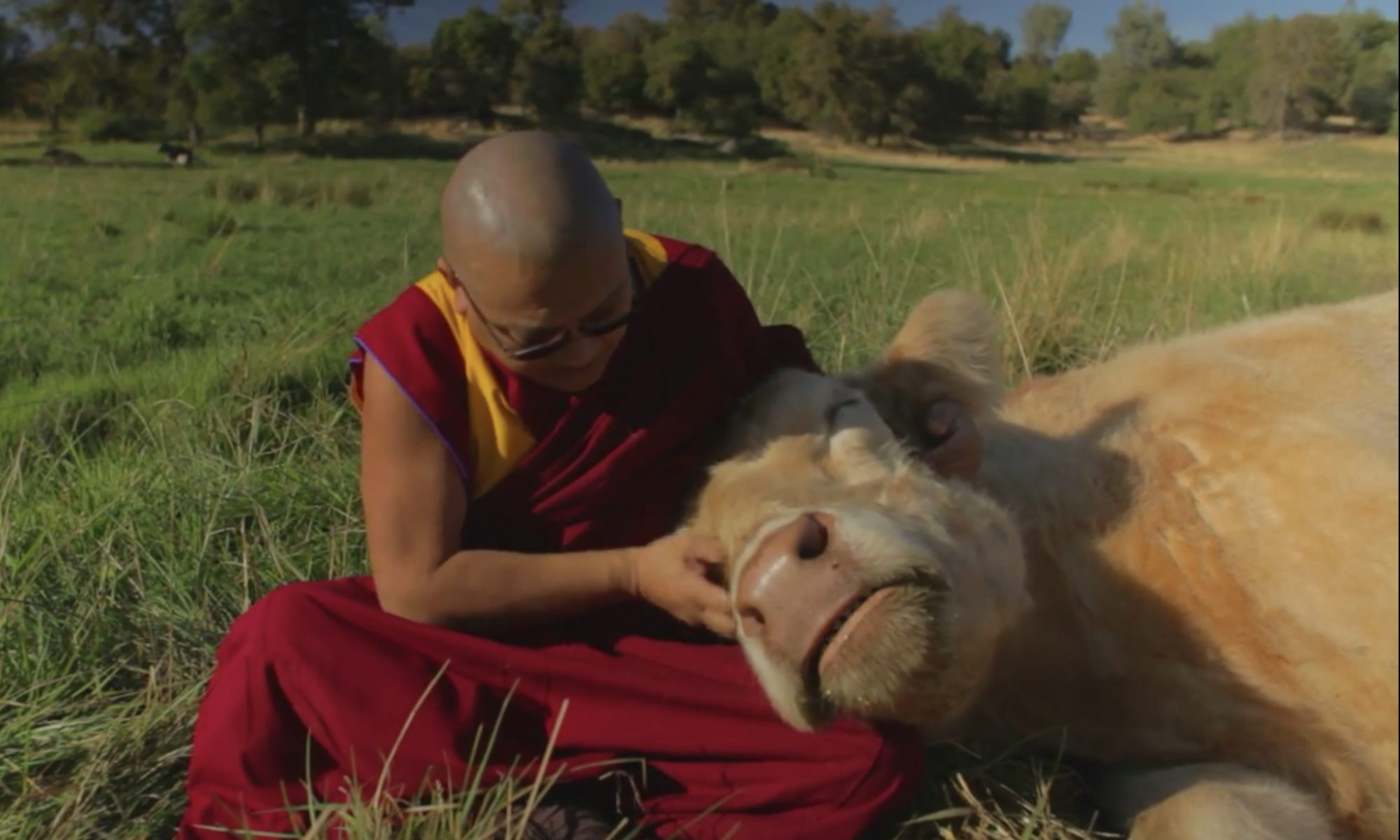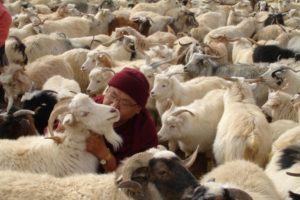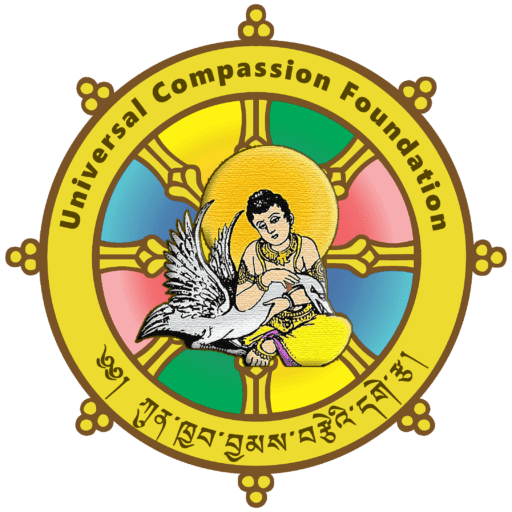ARE BUDDHISTS VEGETARIANS OR DO BUDDHISTS EAT MEAT?

Buddha, His Teaching, His Followers, and the World View:
Do Buddhists eat meat? What do Buddhists eat? Given the image of Buddha in the world view, this is a relevant question from a non-Buddhist. However, unfortunately, the answer is not that simple.
Buddhists are known worldwide for their compassion and strong belief in karma. Being acquainted with any true Buddhist, it’s easy to see that they wouldn’t intentionally hurt even a fly, let alone take an animal’s life. After all, the very fundamental basis of Buddha’s teachings begins with “Do No Harm.” With that principle alone, a sincere Buddhist practitioner should not eat the meat of any sentient being. The truth is, you would be wrong to assume that a Buddhist diet is strictly vegetarian or vegan.
Do Buddhists and monks eat meat?
Do Buddhists eat meat even with the fundamental basis of causing no harm? The fact of the matter is, yes, many Buddhists are still eating meat. Not just as lay Buddhists, the monastics, including prominent and popular preachers, do so while teaching about compassion. However, as we spread awareness, more and more younger generations are moving towards a compassionate lifestyle, which is marvelous to see.

What Did Buddha Say About Buddhists Eating Meat?
Buddha clearly stated, which can be found in the Lankavatara Sutra, “Since all sentient beings are equal to me as my only son, how can I approve my followers to eat the flesh of my son? Eating meat to me is out of the question. I have never approved, I am not, and I will never approve that – I have strictly condemned eating meat in every way.” To eat meat as a Buddhist is to go against what Buddha Shakyamuni taught in the sutras. Furthermore, eating meat contradicts Buddha’s fundamental teachings on basics such as non-violence and not causing harm to others overall, directly or indirectly.
Buddha taught us that all sentient beings want to be happy and avoid suffering, which is the primary goal in everyone’s precious life. Buddhists know that all animals (land and sea), insects (even those pesky mosquitos), including all those of the six realms, want to live and avoid suffering by any means possible. Doing them harm directly or indirectly creates negative karma collectively and independently. Why then do so many Buddhists still eat meat?
The Unfortunate Part of the Controversy Is:
It’s hard to change your lifestyle; it’s hard to sacrifice the temptation of the taste of meat; however, the regrettable part in this whole controversy is the cheap excuses Buddhist practitioners make in eating them, such as:
1. We don’t butcher the animal; we only buy the meat.
2. People often misinterpret Buddha’s words in trying to justify their actions, one of which is this: Buddha said: Replying to a question, “if you are starving and found a dead animal, you can eat that to survive.” Still, even in there, he put three conditions to make sure anyone didn’t kill the animal for consumption. The three conditions are: first, you have not witnessed that killing for consumption. Next, you have not heard anyone killed the animal for consumption. Lastly, you do not doubt if someone killed it for consumption. People often misinterpret this as approval of meat-eating.
3. Some even misinterpret the precious alms tradition of the monks and nuns in justifying meat-eating by saying you respectfully eat what a devoted follower has offered.
The Common Problem:
The unfortunate truth is common to all cultures and faiths, which is a lot of misinterpretation of the teaching of holy religions worldwide. There’s a lot of cruelty and unethical practices and ways of worshiping in all faiths. Buddhism has also gone through that a lot and maybe more today following the modern race of selling and marketing.
In today’s lifestyle, your consumption is the reason for slaughterhouses. Therefore, as we move towards awareness and a more compassionate lifestyle with plant-based foods, people will reduce raising animals for their meat. Thus, the brutal and bloody killings will happen less and less.

Venerable Geshe Phelgye’s Appeal for Compassion
As the Buddha taught over two and a half thousand years ago, there are many benefits to following a vegetarian lifestyle – both for us and for other beings as well. Today, so many centuries later, the Buddha’s words are as powerful as ever, and even modern science is starting to validate this profound teaching.
In recent years, the world has become a very unbalanced place. The human consumption of meat directly causes, no doubt, part of this imbalance. In industrialized countries, the meat industry is guilty of causing substantial environmental problems: methane gas produced by cattle contributes to global warming; acidic pig feces pollutants subterranean aquifers; over-fishing is emptying the oceans of their fish; livestock have recently even spread severe and fatal illnesses to humans!
Not only are we hurting our environment by raising meat, but we hurt ourselves when we eat it. We hurt ourselves in two ways:
First, eating meat is contrary to our inherent Buddha-nature, which is, in essence, a love for all sentient beings throughout space; Second, eating meat is unhealthy, especially in the long term. Not eating meat can lower their chances of getting heart disease, high blood pressure, cancers of all sorts, infectious diseases, the so-called ‘Mad Cow’ disease, etc.
Geshe Phelgye’s Appeal to stop eating meat:
Therefore, my appeal to you is this: give up eating meat from today onwards; if you feel you cannot do that, eat less meat. It might take several tries to give up eating meat, as all habits are hard to break.
However, I wholeheartedly encourage you to do it for the following reasons:
- By not eating meat, you will save many lives over the years and gain good merit. Remember that the Buddha taught that all sentient beings have at one point been our mothers. To not eat meat is not to eat your mothers;
- It will benefit your health, especially over the long term; and
- It will help preserve the environment for future generations.
Thank you,
Geshe Thupten Phelgye
(A Buddhist Monk)
